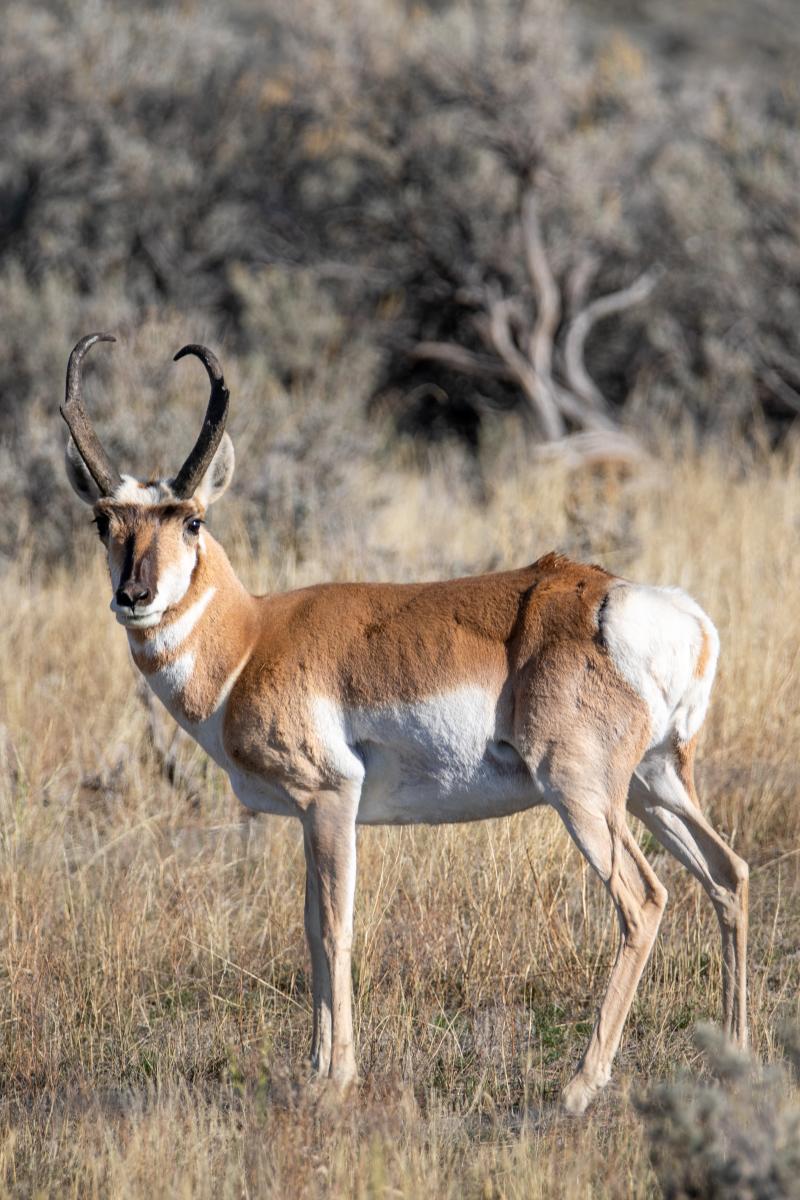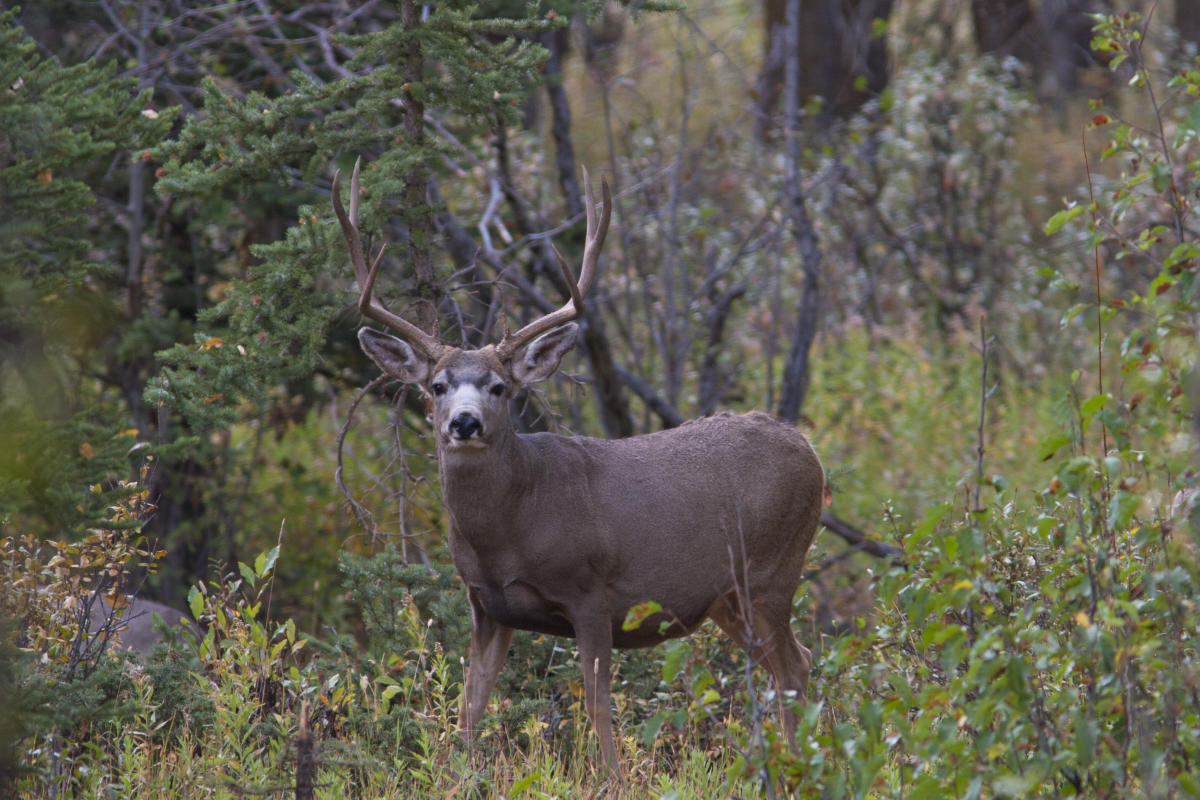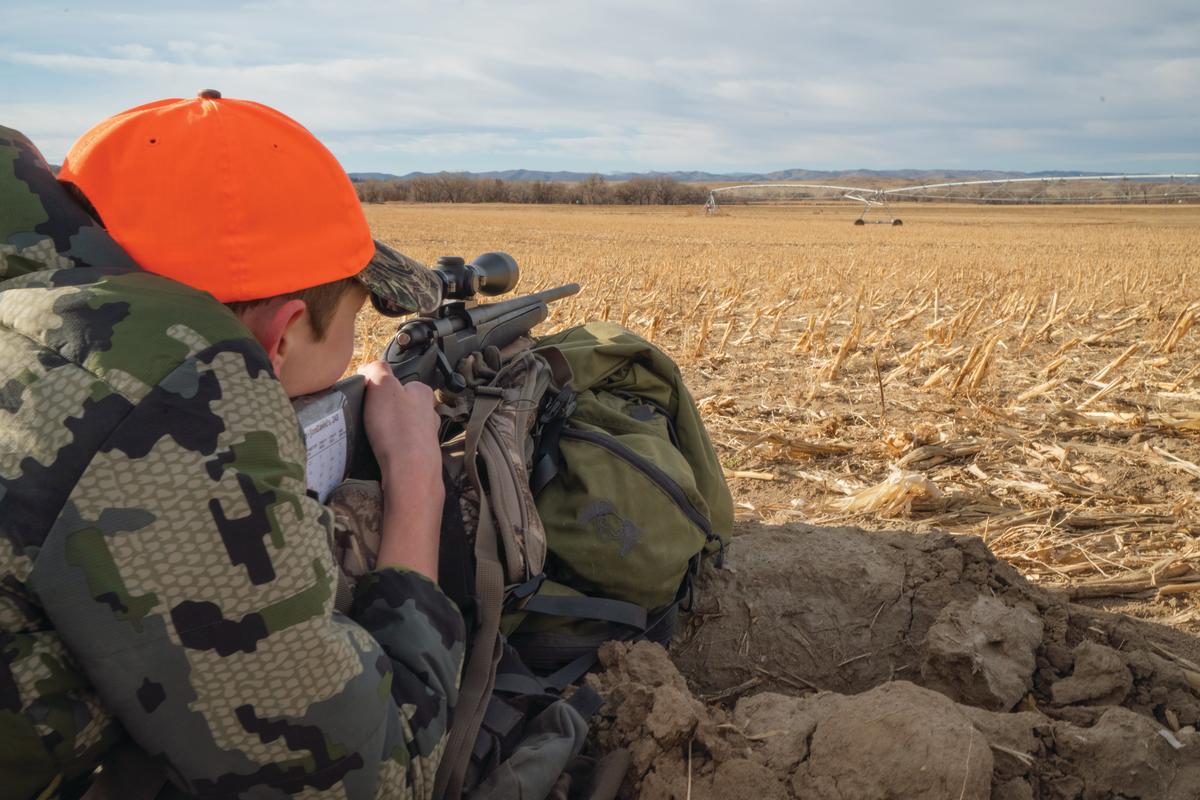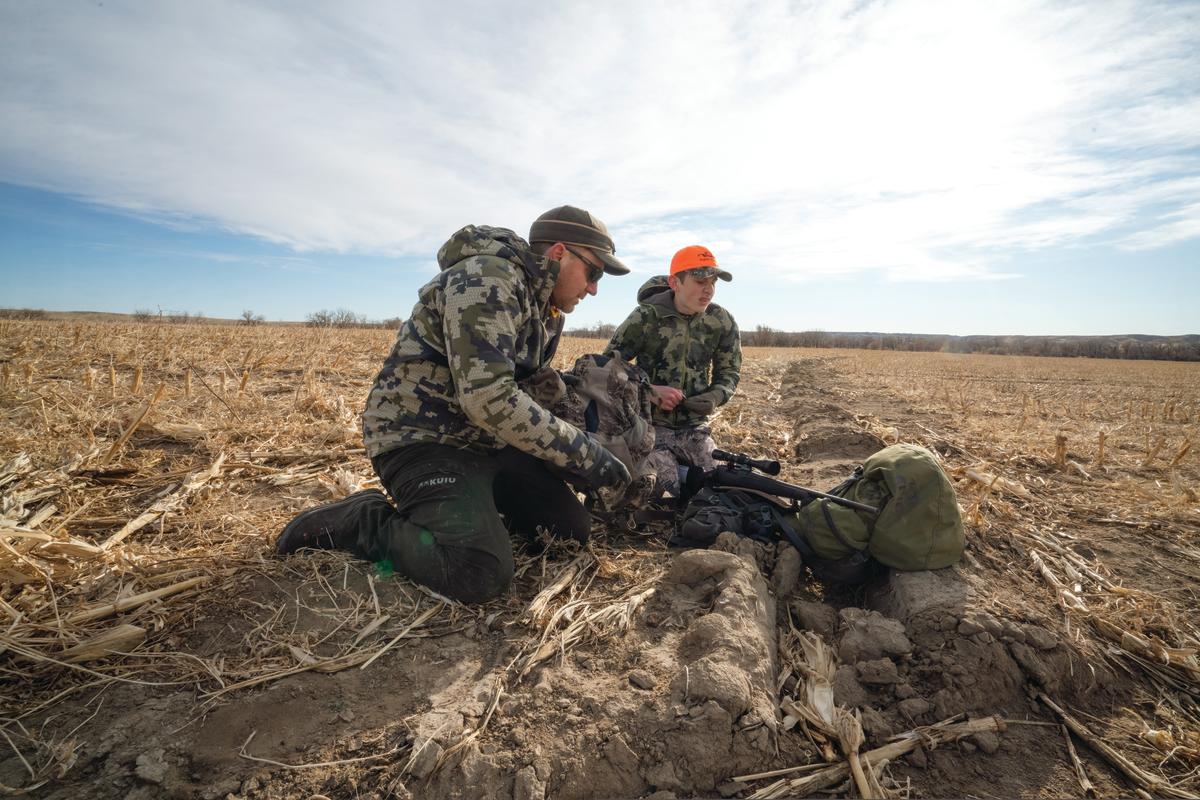Our planet, and its wild resources, are finite and precious. It may be surprising to learn that hunting wild game is a very sustainable and environmentally conscious way of procuring meat. Wyoming hunters overwhelmingly value their state’s natural resources. The Wyoming Game and Fish Department partners with hunters to make sure that Wyoming’s wild areas can continue to be enjoyed. Read on to find out more about how responsible sportsmen can support Game and Fish and practice hunting sustainably.
Hunting Can Reduce Carbon Emissions

A Wyoming Pronghorn (photo credit Wyoming Game and Fish Department)
In our current day, there is a great deal of concern about climate change. Locally sourced food, of any variety, is one way to reduce carbon emissions. Locally sourced food is not processed in large factories, packaged in large amounts of disposable packaging, or shipped cross-country—all of which produce significant waste and pollution. Hunting also reduces reliance on commercial agricultural animals and the potentially adverse effects on the environment.
Hunting is Beneficial to Animals and the Ecosystem
 A majestic mule deer (photo credit Wyoming Game and Fish Department)
A majestic mule deer (photo credit Wyoming Game and Fish Department)
It may seem counter-intuitive, but hunting is a humane alternative to commercially raised meat. It is well-known that free-range livestock leads happier and often healthier lives than animals raised in more confined conditions. Wild game animals are as free-range as can be. They spend their lives in their natural environment, living the way nature intended. Furthermore, due to their free-range, grass-fed lifestyle, wild game meat is usually lower in fat than commercially raised animals. They are also free of antibiotics, dyes, and other commercial additives and preservatives—100% organic.
Harvesting an animal through hunting, when done in an ethical and conscientious manner, is more humane. Animals often experience a great deal of fear in traditional slaughterhouses. Dying from natural causes (age, predators, or disease) is seldom as quick or painless.
Hunting also promotes balance in the ecosystem by reducing the number of game animals in accordance with what an environment can support. Too many deer, for example, can lead to over-grazing and soil erosion. The destruction of plant life that this scenario causes affects not only the deer, who may starve but many other species as well. Hunters are crucial to maintaining a healthy animal population.
The Wyoming Game and Fish Department and Sustainable Wildlife Management
 A young hunter takes careful aim (photo credit Wyoming Game and Fish Department)
A young hunter takes careful aim (photo credit Wyoming Game and Fish Department)
The Wyoming Game and Fish Department works tirelessly to manage Wyoming’s land and animals in a way that benefits the natural world, as well as hunters and fishermen.
One of the most direct ways that hunters and The Wyoming Game and Fish Department partners is through the regulation of hunting seasons, areas, and quotas, and through the sale of hunting tags. Game and Fish employs several wildlife biologists in each of its eight regions throughout the state. Biologists in these regions study the animals, habitat, and a variety of factors affecting the health of the animal population. Decisions about hunting seasons and quotas are informed by the needs of the animals and the environment. Game and Fish works hard to sustain a healthy animal population. When hunters purchase hunting tags, the funds help to support Game and Fish.
As part of their wildlife management responsibilities, Game and Fish implements a variety of strategies and programs. They work to monitor the spread of diseases, such as brucellosis and Chronic Wasting Disease (CWD). They also relocate animals like bears or mountain lions who come into conflict with humans. Game and Fish also works hard to maintain a healthy environment through planting native foliage, prescribed burns, and other approaches.
For example, one initiative is to reduce collisions between vehicles and big game animals. There are over 6,000 such collisions annually in Wyoming, resulting in millions of dollars in damage and injuries. Game and Fish has partnered with a variety of stakeholders to increase wildlife crossing warning signs, mow vegetation to increase visibility, build fences, and even build animal crossings in the form of “underpasses” and “overpasses.” Read more about the ongoing work to reduce collisions here.
The Wyoming Game and Fish Department is instrumental in maintaining the health and sustainability of Wyoming’s extensive natural resources. Without the funding provided by hunters and fishermen, they would not be able to carry out many of the important tasks involved in caring for Wyoming wildlife and habitats.
Hunter Responsibility
 A young hunter working with a seasoned "mentor" hunter (photo credit Wyoming Game and Fish Department)
A young hunter working with a seasoned "mentor" hunter (photo credit Wyoming Game and Fish Department)
The cornerstone of sustainable hunting is the hunters themselves. They have a significant responsibility to work with Game and Fish and practice sustainable hunting.
The most obvious and important responsibility of hunters is to follow the Wyoming Game and Fish regulations. As stated, a significant amount of research and planning goes into establishing seasons, quotas, and other regulations. Hunters have a legal obligation to abide by the laws, cooperate with game wardens, and follow the procedures put in place.
One of the safeguards put in place by Game and Fish is the requirement that all hunters take a hunter education course (formerly hunter safety). All hunters born after January 1, 1966, must carry proof of hunter education while hunting unless accompanied by a hunter-mentor. Game and Fish provides quality hunter education courses to not only reduce accidents related to firearms but also to teach hunters about their responsibilities and to develop ethics. To find out more about hunter education programs in Wyoming, see the Wyoming Game and Fish Hunter Education homepage.
Another way Hunters can promote sustainable hunting is by cooperating with Game and Fish to collect data. Game and Fish routinely enlists hunters to collect important information about the health of big game populations. Hunters can collect and submit blood and tissue samples from harvested animals to help Game and Fish study diseases like CWD and brucellosis.
Finally, hunters are responsible for following ethical hunting practices. Hunters should make sure they are knowledgeable about the animal they are hunting, the area they are hunting in, and Game and Fish regulations. They can take advantage of Hunter Education classes offered by Game and Fish, or by hiring a hunting guide. Ethical hunting practices also include practicing shooting and using quality equipment to ensure that animals are killed quickly and humanely. Ethical hunters should only take a shot when they know it is safe to do so and they will kill the animal quickly. If hunters do wound an animal, it is their responsibility to track it and see that it is killed quickly. Furthermore, it is only ethical to harvest a game animal when the intent is to use as much of the meat as possible. Hunters also have a responsibility to “leave no trace” on the natural landscape, by staying on designated trails and roads and carrying out everything that they bring in.
Hunting is a very beneficial and enjoyable activity when done in a responsible and sustainable way. The partnership between hunters and The Wyoming Department of Game and Fish will help to preserve Wyoming’s natural environment and wildlife for generations to come.
You may also enjoy: Top 10 Things to Bring on a Hunting Trip in Wyoming, Choosing a Wyoming Outfitter, and Best Places in Wyoming for Viewing Wildlife.



